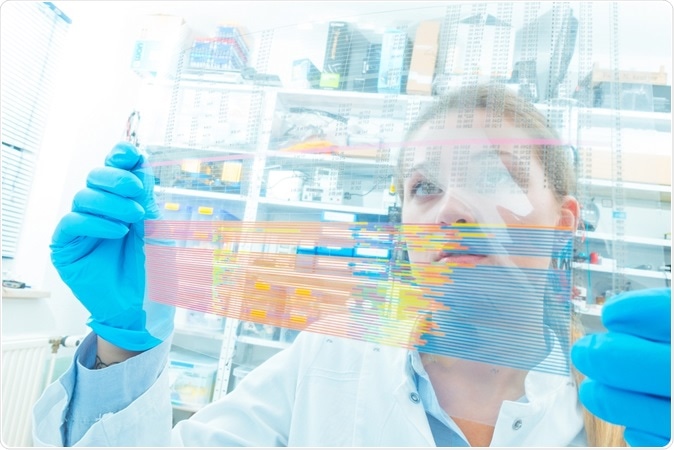A new study has shown the potential of analyzing cell-free DNA (cfDNA) present in patients’ blood for cancer markers in early cancer detection. This technique was used in some instances for patients who already were diagnosed with a cancer as reported by some studies.

Image Credit: Science photo / Shutterstock
This was not a popular detection technique in early cancers because the smaller and earlier tumours tend to shed very small amounts of DNA into blood that can be hard to detect. Further the cancer associated genetic alterations was difficult to detect in the cell-free DNA samples because the primary or original tumour and its genetic makeup was not known.
The research addressed both of these limitations in the earlier methods and enabled the use of this technique for cancer detection in early cases. This technique could now have a potential to be used in cancer screening more effectively.
The test termed “liquid biopsies” was tried upon 138 patients with early tumours and it successfully identified the early-stage cancer in more than half of the patients. Liquid biopsies were used to detect the return of cancers after treatment.
This is the first time they have shown promise in cancer detection write the research team. Dr Victor Velculescu, professor of oncology at Johns Hopkins Kimmel Cancer Center, whose study was published in the journal Science Translational Medicine yesterday, said this is the first study that looked at early stage cancers and the use of this technique in them.
The technique is called targeted error correction sequencing (TEC-Seq). This technique can allow ultrasensitive direct evaluation of sequence changes in the DNA that flows in flood.
The most difficult part in using this test for detection was to enable it to identify the rare DNA from cancers and not showing up results from other types of genetic alterations or mutations that a person is born with or develops during life.
The team of researchers screened the blood samples from patients with breast, lung, ovarian and colorectal cancers. They noted 58 genes that are typically associated with these cancers. Of the 138 cancers, they could detect 86 stage I and stage II cancers. The genes were sequenced in 100 of the patients and 82 of them showed the same mutations in blood samples as well as in the tumour tissue samples. To be sure that they were on the right track, the team also tested 44 healthy patients and found that these persons did not have any cancer-derived mutations.
For this study the cfDNA is extracted from the blood and converted to a library of genes for reference. This library of genetic sequences is then captured and sequenced for analysis. Samples were processed within 2 hours from collection from the healthy individuals.
Among the cancer patients 45 were with breast cancer, 42 with colorectal cancer, 65 with lung cancer and 42 with ovarian cancer. These were untreated patients who had localized or metastatic disease at stages I and II. While concentrations of cfDNA were average of 7 ng/ml in healthy participants, it was around 29 ng/ml in cancer patients.
Velculescu explained that this was an early study and larger scale studies are necessary to be certain of the utility of this test. It would be around five years before this test could come into the market for safer and more accurate diagnosis of early cancers, he said.
Velculescu noted that the earlier participants in trials for this test would be heavy smokers who are at risk of developing cancers. Velculescu is also a co-founder of Personal Genome Diagnostics, a private liquid biopsy company.